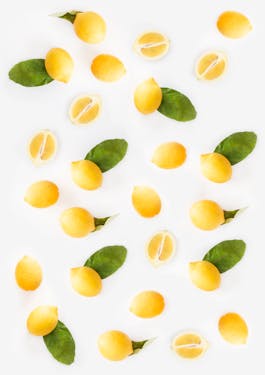What Are The Best Ingredients for Vitamin C Serum?
SKIN-CARE TIP # 2: Double-Cleanse Do you wear a lot of makeup or live in a city filled with smog?
SKIN-CARE IDEA # 3: Apply Moisturizer After Cleansing Cleansing your skin is a great start but without Delta 8 Vape Pen hydrating it straight after, you’re missing an important skin-care action. how to fix congested skin. When you apply moisturizer while your skin is still slightly damp post-cleanse, you’re able to seal because wetness to help promote all-day hydration.
For instance, you can begin with a light-weight serum, followed by a thin moisturizer and finally a broad-spectrum sun block to lock everything in.
SKIN-CARE POINTER # 6: Cater to Your Skin’s Requirements With Multi-Masking When you multi-mask, you apply different face masks to specific parts of your skin to cater the items to the location’s particular requirements.
Try the for a gentle alternative.
SKIN-CARE TIP # 8: Never Use Makeup to Bed Even if you’re tired from a long day of work, make sure to reserve time to remove your makeup. When you drop off to sleep in your makeup, it can result in clogged up pores and possible breakouts.
The smart Trick of African Baobab Extract That Nobody is Discussing
SKIN-CARE SUGGESTION # 9: Utilize a Facial Mist If you’ve seen somebody spritzing their face midday and desire to get in on the skin-care pattern, know that misting is most beneficial when you use a specially-formulated facial spray – Acmella Oleracea extract. Many of these items are abundant in skin-benefitting minerals, like the. We also enjoy the for a fresh glow.
SKIN-CARE IDEA # 13: Treat Your Neck the Same as Your Face Becausethe neck is one of the areas of skin we tend to neglect in our skin-care routine, noticeable signs of aging can start to approach – How to get even skin tone. To help combat this problem, extend the items from your facial regimen down listed below your jaw.
This will just lead to increased dryness. To help sooth chapped lips, keep a nourishing lip balm on hand like the or the.

SKIN-CARE SUGGESTION # 18: Be Mindful of Irritants If you have delicate skin, products that are formulated with scent, parabens, sulfates and other severe active ingredients might be harmful to your skin (African Baobab extract). To decrease the risk of inflammation, choose instead for items that suggest on the product packaging that they are either developed specifically for delicate skin or dermatologist-tested.
What Does Acmella Oleracea Extract Do?
These scrubs are generally not as gentle and can cause inflammation – African Baobab extract. When in doubt, follow the guidelines as noted on the item’s product packaging. SKIN-CARE TIP # 20: Modification the Method You Sleep While sleeping on your back might feel odd to get used to, it’s much better for your skin. Sleeping on your side or stomach can cause compression lines on your face and ultimately trigger creases and wrinkles to form.
Here’s the most crucial skin-care suggestions I have actually found out. Oh, and ensure to consume plenty of water.
1. Squeezing a pimple will never ever, ever make it better, much faster. Translation: Stop touching your face. Your hands are covered in bacteria the majority of the time (simply consider all the stuff you touch) (How to get even skin tone).
3. You do not require to invest $300 on a skin-care item for it to be really excellent. Listen, we have actually all found out about the amazing powers of ultra-expensive potions and creams, however there’s simply zero reason you ‘d ever require to spend a week’s worth of grocery cash on a little hydration increase (Acmella Oleracea extract).
A few of them market lifting and firming homes. (Though as someone with a 34D bra size, I can inform you I haven’t seen any of that begin.) 6. Conserve the bulk of your skin-care routine for bedtime. Numerous years back, I asked a fellow beauty editor and coworker who had the most baby-soft skin about her regimen. how to fix congested skin Delta 8 Vape Pen.
How African Baobab Extract can Save You Time, Stress, and Money.

Derms agree that the skin repairs itself overnight, so things like retinol and thick moisturizer are best used in the evening. Think about your skin like a sponge that wants to soak up all of the goodness you’re using. How to get even skin tone.
Getting a deal with on your skin is hard., it feels like you’re lastly in control of your skin’s destiny (Acmella Oleracea extract).
Add to all the misinformation out there on the internet, and browsing your method to clearer, much healthier skin can seem like a minefield. Our editors are by no methods physicians, but we have actually invested our reasonable share of time around them, both for interviews and for our own individual skin-care struggles.
Melissa Haney, digital analytics supervisor, However still make sure you’re routinely getting rid of dead skin. The something every professional informs me is that your skin care can’t be reliable if you’re always putting it over a layer of dead skin. That’s why exfoliating a few times a week is crucial.
Unknown Facts About Acmella Oleracea Extract
It’s not technically advice I was provided by another person, but reading labels has altered everything Delta 8 Vape Pen for me. It sounds easy, but I used to slather on anything in a cute package or with a buzzy name and wondered why my skin was constantly dry and dull, regardless of having access to great items.
It would’ve saved me countless breakouts and freakouts had I learned this faster. Brionna Jimerson, associate social media manger, Single components are in some cases just as effective as complex formulas – African Baobab extract. My household is actually into the healing power of honey (a large portion of them reside in Vermont and keep bees) (African Baobab extract).
I do not know if it was the water or all the ice cream I was consuming (all right, most likely not that), but I highly advise (African Baobab extract). Sarah Olin, style director, There’s a distinction in between dry skin and dehydrated skin. One of the most shocking revelations I gained from a derm is that my Sahara-dry cheeks and chin weren’t really an outcome of having combination skin like I thought.
The difference between dry skin and dehydrated skin is that if you’re dry, you have less oil-producing glands in your body. But if you’re dehydratedwhich any skin type can likewise beit ways your skin is lacking water, not oil (African Baobab extract). Simply as the term implies, dehydration can be brought on by a number of things: the weather condition, your environment, how much water versus caffeine you consume, all of which can deplete the level of water in your skin.
More About Acmella Oleracea Extract
Madeline Hirsch, senior social networks supervisor, Sunscreen actually is the very best antiager – how to fix congested skin. I resided in secret embarassment for years because I liked skin care but neglected every professional’s a lot of standard piece of recommendations: Wear sun block every second of every damn day, except when you’re asleep. I was investing bank on serums however avoiding the one product that protects from wrinkles and skin cancer.